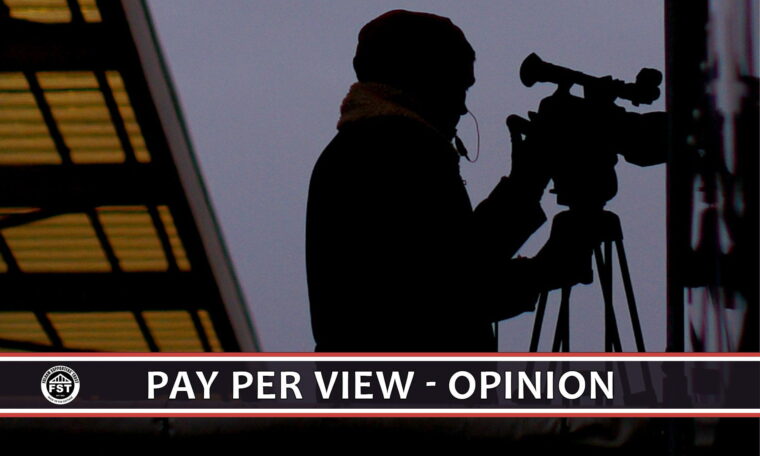Premier League Pay Per View

FST Chair Tom Greatrex discusses the recently announced Premier League pay per view plans and the frustrations felt by supporters of all top flight clubs.
A week is certainly a long time in football.
A few days after the Premier League, along with the EFL and the FA, get behind a push to enable fans back into grounds as public health advice allows, and exhort supporters to join the calls as a Parliamentary petition quickly reaches 100,000 signatures, they turn around and think they are doing supporters a favour in charging £14.95 to watch each individual match. If ever the prevailing attitude of the Premier League towards fans needed illustrating, there it is. Football is nothing without the fans; who else would be so complicit in paying over the odds?
For the past few weeks, and increasingly since it became clear that the option for a limited return of fans was not going to happen in October, Supporters’ Trusts of the Premier League clubs have been part of the Football Supporters Association (FSA) push to find a way of letting fans watch games they would normally go to. While the EFL have, through iFollow, got something that works for every club on a match by match basis, Premier League rights are complicated by being shared across a plethora of domestic and international platforms. So it was always going to be a complicated thing to pull off, but we have somehow ended up in a situation that is almost worse than nothing at all.
The reason for that is pretty simple – the collective tin ear of the Premier League clubs to what is acceptable or reasonable.
Had they bothered to engage with supporters ahead of setting the price point – the fans who football is nothing without, remember – they would have realised that there is a tipping point between a potential source of much needed revenue from an increased group without the restrictions of a ground capacity, and driving people towards illegal streams or, and this you would think they would be more worried about, to doing something else with their time and money instead. This is even without any sort of acknowledgement or understanding that job losses, business collapses and reduced incomes are, and will continue to, impact on many of those self-same fans expected to pay £14.95 for each match.
Watching a game on TV is not the same as being there, and particularly so when played in all but empty grounds with only the football equivalent of canned laughter for atmosphere. At present, though, it is the best that is likely to be available. It does not mean that the pricing of the two should be comparable. To their credit, Fulham have not sold season tickets while other clubs have and some are being slow to refund. There was an opportunity, in these difficult, uncertain and hopefully temporary times, to actually build a revenue stream with a broader group of people for as long as restrictions on actual attendances are in place. Instead, we have a price point that is too high and as the reaction has shown, something that could have been a positive has become a PR flashpoint for the Premier League. A lower price would not only be fairer, but potentially also a way of building a bigger base of supporters to appeal to when tickets can be sold again. For both reasons, the FSA is right to call for a review of the price and I expect that if that doesn’t happen, the take up will be less than Premier League clubs may have anticipated.
There is also an inherent unfairness between clubs; those who are likely to be less often picked for TV coverage – everybody outside the traditional big six plus perhaps Everton and Leeds this season – will be expected to pay more. To see each game, when going is not an option, requires a subscription to Sky, to BT, to Amazon Prime and now a pay per view on top for perhaps fifteen to twenty games. This is way beyond the cost of most season tickets without the additional, and for many integral, aspects of being at a game that is part of the overall attraction. And that is just for League games.
While the underlying issues are not new, the context is important. Continuing to behave as an out of touch behemoth will do the Premier League no good at a time when allowances for and compromises with business-as-usual has had to become the norm in many other aspects of life. While the difference between £14.95 and, say, £10 may seem relatively trivial, it is the message it sends that is more damaging. As a collective, the Premier League have shown themselves to be dangerously out of touch and decoupled from the reality of the lives of many of its ‘customers’.
What should happen next, is what should have happened before, and the Premier League should sit down with supporters to get a better approach as soon as possible, and certainly by the time this is reviewed at the end of the month. The thinking of the Premier League may be to ride this out, let the noise from a vocal minority wash over them and carry on. If that is the case then they may well find out the hard way just why football without fans is nothing.

